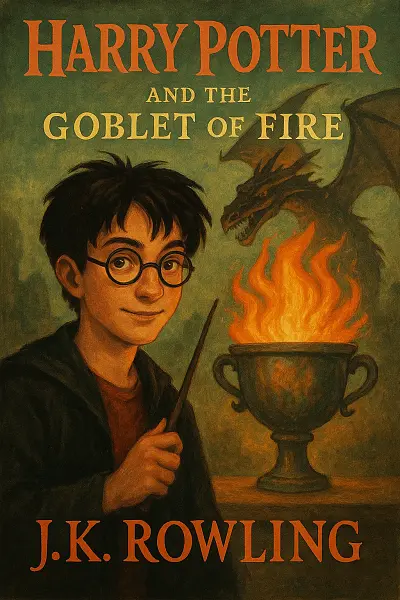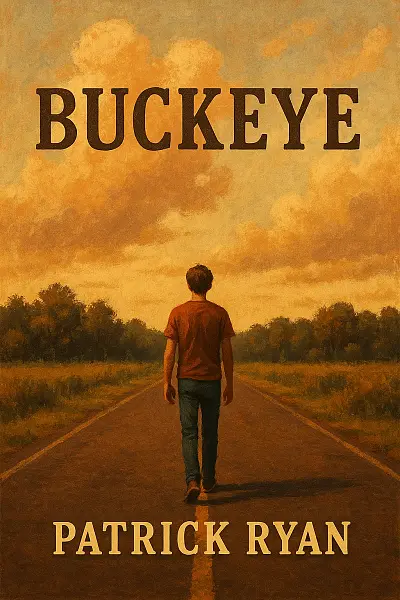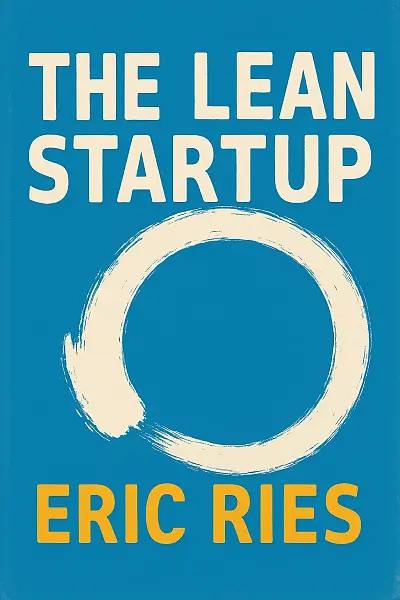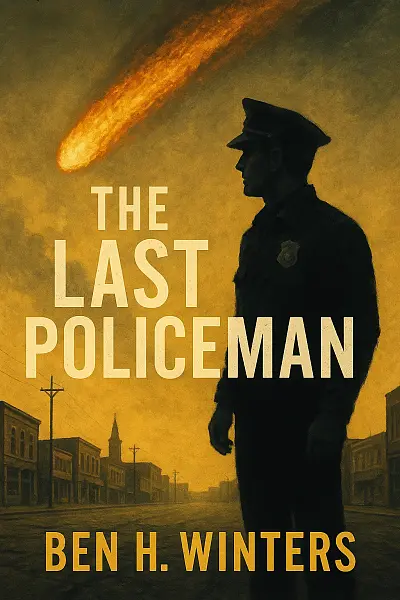
The Last Policeman
by: Ben H. Winters
Detective Hank Palace sticks to his badge in a crumbling New Hampshire, where an unstoppable asteroid and global despair have everyone giving up. With just six months left, it’s hard not to wonder, what’s the point?
Hank’s routine is shattered when he’s called to a possible suicide—yet his gut screams murder. Everyone else has checked out, but Hank needs to uncover the truth, even as the world inches closer to its end.
His relentless search for justice becomes more than a whodunit—it’s a fight to stay human when civilization is falling apart. Will he solve the case, and does it even matter?
""In the shadow of the world's end, meaning is forged not by survival, but by the choices we make when everything else falls away.""
Let's Break This Down
The Author's Voice
Atmosphere
Expect a moody, almost noir-drenched vibe—think quietly crumbling cities, endless gray skies, and a sense of slow-burn dread that creeps into every corner. Winters paints a world teetering on the edge of collapse, creating a palpable tension where every interaction trembles with the knowledge that time is running out. There’s a striking blend of melancholy and stubborn hope here; the atmosphere is thick with resignation, but never quite nihilistic.
Prose Style
Winters’ prose is lean, unflashy, and deeply grounded—the kind of writing that’s deceptively simple until it carves out an emotional sucker-punch. Dialogue is crisp, voices ring authentic, and detail pops just enough to immerse you in the scene without bogging things down. He avoids ornate language, favoring sharp, matter-of-fact sentences that echo the stark reality his characters face. The style fits perfectly for the story’s bleak yet invigorating premise.
Pacing
This isn’t your typical high-speed thriller—expect more of a steady, contemplative rhythm that mirrors the methodical nature of an investigation. The story unfolds deliberately, with quiet pockets of introspection and bursts of action that punctuate the narrative just when things might feel too calm. There’s a sense of urgency simmering beneath the surface, but Winters doesn’t let the plot rush ahead of the characters’ emotional journeys. It’s engaging, for sure, but don’t go in expecting relentless speed—this is a slow burn, designed for readers who enjoy tension that builds gradually.
Character Voice & Perspective
The narration channels the weary-but-stubborn perspective of Detective Hank Palace, whose voice is earnest, methodical, and almost heartbreakingly sincere. Winters gives you the world through Palace’s eyes: stubbornly clinging to routine, haunted by quiet existential fear, but driven by a fiercely practical sense of justice. Internal monologue captures nuance and vulnerability, offering an intimate look at a man defined by both doubt and determination.
Mood & Emotional Resonance
There’s a fascinating juxtaposition at work: existential dread collides with small, everyday acts of decency. Expect equal parts fatalism and hope, laced with dry humor and moments of surprising tenderness. The emotional tone is understated—no melodrama here—but it’s quietly affecting, leaving you pondering what matters when the world is about to end.
Imagery & Description
Winters prefers suggestion over excess, offering just enough detail to conjure fading neighborhoods, empty streets, and quiet desperation. Visuals are evocative but not overbearing; the writing lets readers fill in the blanks, inviting you to imagine what’s lurking just beyond the page. This restraint keeps the focus tight on atmosphere and character, never letting description overshadow the story’s forward motion.
Overall Vibe
Think hardboiled detective story with a speculative twist—atmospheric, inward-looking, and intriguingly bleak. If you love introspective mysteries with just the right dash of existential weight, The Last Policeman’s style will pull you in with its subtlety and emotional punch.
Key Moments
-
Detective Hank Palace investigates a supposed suicide while the world counts down to apocalypse
-
Crumbs of hope and stubborn duty: solving murders as society unravels
-
Wry, deadpan humor everywhere—from coffee shop crumbles to crime scene confessions
-
The haunting image of a Concord street emptied by looming catastrophe
-
Philosophical “what’s the point?” debates woven into every interrogation
-
A quietly devastating ending that lingers, questioning what really matters when time runs out
-
A whodunit against the ticking clock of humanity
Plot Summary
The Last Policeman plunges you into a world counting down to destruction: an asteroid is on a collision course with Earth, and civilization is unraveling. Amid this backdrop, Detective Hank Palace investigates the suspicious “suicide” of Peter Zell, an insurance actuary, refusing to accept the easy answer when everyone else is already giving up hope. As Hank digs deeper, he uncovers a web of secrets, learning that Zell was murdered over a hidden cache of heroin. The investigation leads Hank through the crumbling city, where most have abandoned their posts or themselves, but his dogged pursuit finally exposes the killers within Zell’s own circle. The novel climaxes with Hank confronting both the murderer and the irreversible reality of societal collapse, choosing to hold on to his sense of duty, even as the world ends.
Character Analysis
Hank Palace is the heart of the story—awkward, intensely moral, and almost stubbornly committed to doing his job even as everyone else checks out. He truly believes in justice for every victim, no matter how small the case seems in the shadow of the world’s end. Supporting characters like Hank’s sister Nico, a conspiracy theorist obsessed with survival, sharply contrast the protagonist and challenge his values. Throughout the book, Hank’s arc isn’t so much about change as it is about holding on—grappling with meaning and decency when meaning itself is slipping away.
Major Themes
A major thread is the search for meaning in the face of nihilism: Hank investigates to uphold some sense of order, when chaos would be the easier path. Another powerful theme is duty versus apathy—what does responsibility mean when the world is ending? We also see explorations of morality and justice: Is it still worth pursuing justice when the future is utterly foreclosed? Winters punctuates these questions with snapshots of real people’s reactions: some run away, some indulge, and a rare few—like Hank—keep going out of principle alone.
Literary Techniques & Style
Ben H. Winters writes with crisp, direct prose, blending the conventions of both detective fiction and dystopian literature for something that’s dark, yet strangely hopeful. The narrative is almost cinematic: short chapters, snappy dialogue, visual descriptions giving a “lived-in” feel to an unraveling world. Winters uses weather as a subtle motif for looming doom, while small details (dying restaurants, abandoned cars) stand in for societal collapse. The first-person perspective keeps us close to Hank’s obsessiveness and stubborn hope, emphasizing his emotional isolation and determination.
Historical/Cultural Context
Set in contemporary America during an imagined pre-apocalyptic crisis, the novel reflects anxieties about societal collapse and personal purpose. The backdrop of impending disaster draws on post-9/11 and post-recession pessimism, exploring how ordinary people—police, citizens, families—respond to existential threats. The story’s Portsmouth, New Hampshire setting grounds the catastrophe in small-town America, making the end of civilization feel intimate and relatable.
Critical Significance & Impact
The Last Policeman stands out for its daring blend of philosophical questions and crime-solving, challenging the conventions of both genres. Praised for its unique premise and emotional gravity, it’s sparked discussions about what really matters in a crisis—and whether justice is ever a wasted effort. The book has inspired sequels and continues to be recommended for its fresh take on both the detective novel and apocalyptic fiction.
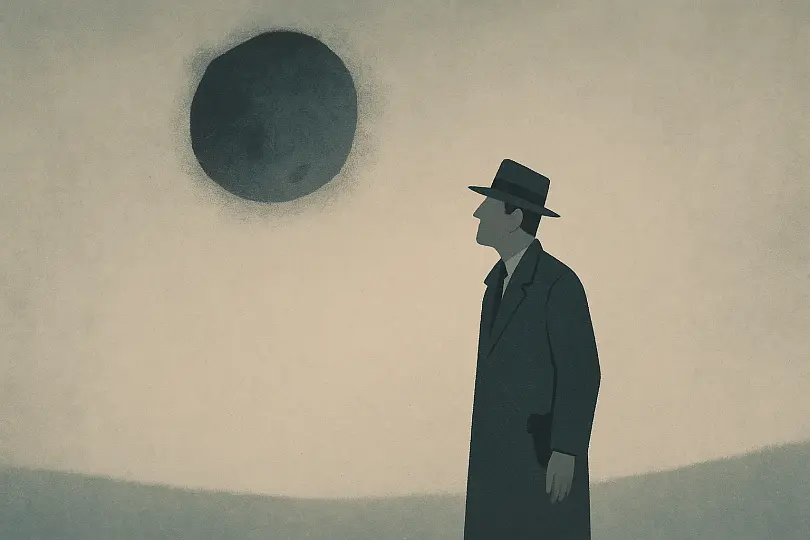
Solving murders as the world ends—a detective story against the apocalypse
What Readers Are Saying
Right for You If
Who Should Totally Read The Last Policeman?
-
If you love a good blend of genres—think detective stories mashed up with end-of-the-world vibes—this one’s basically tailor-made for you. The book throws a classic whodunit right into an apocalyptic setting, so you get suspense, moodiness, and lots of moral gray areas.
-
Mystery fans: If your shelves are packed with crime novels and you get a kick out of untangling clues, The Last Policeman will scratch that itch—just with a hefty side helping of existential dread.
-
Readers obsessed with character studies: The main guy, Hank Palace, is one of those quiet, stubborn types you can’t help but root for. If you love watching characters unravel (or somehow hold it together) when everything’s collapsing, you’re in for a treat.
-
Fans of “big questions”: If you enjoy stories that dig deep into what’s really important when time is running out, there’s a lot here to chew on.
Who Might Want to Skip This One?
-
Not big on slow burns? If you want action from page one or can’t stand introspective/pensive moments… this may drag a little for you. It’s more about atmosphere and character than breakneck thrills.
-
Pure sci-fi seekers: If you’re looking for wild tech, aliens, or intricate world-building, this is way more “present world with a ticking clock” than full-on sci-fi spectacle.
-
Need your mysteries tied up with a bow? The apocalyptic backdrop means not every answer is crystal clear, and if unresolved threads bug you, maybe grab a different mystery.
-
Lighthearted reads only: It’s definitely not a feel-good, cozy comfort read—there’s plenty of melancholy and existential pondering, so keep that in mind.
Bottom line:
If the idea of a detective solving crimes while the world’s falling apart sounds cool, or you love slow-burning, thoughtful stories, give this a go! But if you’re after non-stop action or happy endings… maybe look elsewhere.
What You're Getting Into
Picture this: the world’s counting down its final months before a massive asteroid hits, but Detective Hank Palace is still stubbornly solving crimes in a near-apocalyptic New Hampshire.
When a suspicious suicide crops up, Hank can’t let it go—he’s determined to find the truth, even as society unravels around him.
It’s part gritty police procedural, part existential, end-of-the-world mystery, mixing dark humor with deep questions about purpose and justice when tomorrow might not come.
Characters You'll Meet
-
Hank Palace: Doggedly honest detective determined to solve a suspicious suicide, even as the world faces impending doom. His sense of duty and purpose anchor the story.
-
Nichole "Nico" Palace: Hank’s younger sister, whose rebellious energy and secretive actions add tension. Her arc grapples with hope and radical action in crisis.
-
Detective McGully: Hank's skeptical colleague, often questioning the point of police work in an unraveling society. His cynicism contrasts with Hank's dedication.
-
Peter Zell: The supposed suicide whose case pulls Hank in. His mysterious life slowly unravels a deeper web, propelling the investigation.
-
Naomi Eddes: A key figure connected to Peter Zell, whose guarded nature and vulnerability complicate Hank’s quest for the truth.
More Like This
If The Road by Cormac McCarthy had a noir-tinged cousin, The Last Policeman would fit the bill perfectly—both explore a world teetering on the brink of collapse, yet Winters infuses his tale with a distinctly detective-driven pulse that’s more whodunit than wandering odyssey. Fans of Gone Girl by Gillian Flynn might also get pulled in by Winters’ knack for digging deep into messy, flawed psychology, weaving twists with a subtle tension that makes you second-guess every motive on the page.
On the screen side, the existential dread and procedural unraveling in The Leftovers finds an uncanny parallel here; there’s that same haunting sense of people grappling with the absurd, searching for meaning even as the world slips through their fingers. Winters crafts an atmosphere that will feel instantly familiar to anyone who’s binged dark, slow-burn mysteries and loved wrestling with moral ambiguity right alongside the hero.
Critic's Corner
What’s the point of justice at the end of the world? The Last Policeman throws this razor-edged question right at the reader’s feet, refusing to let us step around it. As an asteroid barrels toward Earth, Ben H. Winters swaps the ticking clock of classic noir for a literal countdown to extinction, daring us to ask: When the sky is really falling, does doing the right thing still matter?
Winters carves out a hauntingly grounded style in prose that’s understated but pulsing with existential dread. There’s a blunt, almost workmanlike economy to his sentences—fitting for Detective Hank Palace, whose dogged sense of duty is rendered in sharp, stoic brushstrokes. Dialogue rings true, eschewing melodrama for quiet weariness and flashes of gallows humor. Winters cleverly laces the narrative with details of daily life disrupted, crafting atmosphere with dry, almost clinical observation: abandoned supermarkets, half-manned police stations, a city hollowed by apathy. Even minor characters flicker with memorable voice, whether resigned, frantic, or defiantly hopeful. The pacing is deliberate, occasionally bordering on meditative, mirroring both Palace’s inner steadiness and the numbed inertia of a society in decline. While the whodunit plot follows familiar genre beats, Winters subverts the form by saturating it with a pervasive sense of futility—and yet, that’s where the tension grips hardest.
Beneath its procedural façade, The Last Policeman is really a philosophical reckoning. The central mystery is less about murder and more about meaning—the mysteries of purpose, dignity, and human resolve when the social contract erodes. Winters interrogates the scaffolding that upholds civilization: duty, law, empathy, and truth. Hank’s stubborn commitment to the case, even as his world dissolves, becomes a quiet act of rebellion—the insistence that our actions matter, even when faced with cosmic indifference. This is a book for anyone unsettled by our own era’s creeping anxiety: economic precariousness, climate change, feelings of powerlessness. Winters speaks to the little acts of decency that form the backbone of order, asking pointedly: how do we behave when all the usual rules and rewards fall away? The novel’s relevance only sharpens as readers negotiate their own uncertainties, making Palace’s doggedness both admirable and achingly poignant.
In the tradition of existential detective fiction—think Raymond Chandler colliding with Camus—The Last Policeman reinvents apocalyptic storytelling by focusing not on spectacle, but on the persistence of meaning under duress. Compared to more action-driven post-apocalyptic fare, Winters thrives in the eerie quiet before the end, joining the company of works like Station Eleven or Children of Men that blend genre with serious ethical inquiry. Within Winters' trilogy, this is arguably the most potent: spare, focused, and thematically charged.
Verdict:
Winters’ world is sparse and affecting, his protagonist’s resolve often heartbreakingly human. Occasionally, the pacing drags and the plot twists underwhelm, but the emotional heft is undeniable. Gritty, thoughtful, and sharply relevant, The Last Policeman is a must-read for those who crave mystery with genuine existential stakes.
Community Thoughts
i was not READY for Detective Palace’s stubborn hope, like seriously, why does he even care with an asteroid coming? that last interrogation scene hit so hard it actually kept me up thinking about justice on a doomed planet
i literally lost an entire night’s sleep thinking about hank palace’s stubborn hope. the looming asteroid made every choice feel heavier, like each chapter was ticking down a clock i couldn’t stop. i couldn’t put it down, even when i wanted to.
Honestly, Henry Palace got under my skin. The way he clings to procedure while the world crumbles is both infuriating and inspiring. I couldn’t stop thinking about his stubborn hope, even after I closed the book.
So Henry Palace just keeps going with his investigation while the world crumbles. That stubborn dedication is wild. Couldn’t stop thinking about how he clings to order in the chaos, honestly haunted me for days.
I did NOT expect to be haunted by Detective Palace’s stubborn calm as the world crumbles. That scene with the empty diner and silent streets? 3 AM and I’m still staring at my ceiling, rethinking what matters when everything’s ending.
Leave Your Review
Local Take
Why It Matters
The Last Policeman by Ben H. Winters lands with a unique resonance in this cultural context, mainly because:
-
Facing Crisis Head-On: Living in a society that has weathered major upheavals and moments of uncertainty, readers might feel an instant connection to the idea of “carrying on” when the world is falling apart. The novel’s existential crisis echoes how many here grappled with uncertainty during times like the financial crisis or recent public health emergencies.
-
Individual Duty vs. Collective Resignation: The book’s focus on personal responsibility—embodied by Detective Hank Palace—reflects local values of perseverance and integrity, even when the odds seem hopeless. Yet, the story also gently challenges the tendency toward collective stoicism, asking: when do you push forward, and when do you let go?
-
Plot Hits Differently: The slow unraveling of social order in the novel might hit a little too close to home for communities with memories of social unrest. The pre-apocalyptic dread echoes the uncertainty felt during turbulent political chapters, making the emotional tension feel real.
-
Literary Echoes: Stylistically, the book’s mix of noir and existential fiction connects with local traditions of gritty detective stories, but bends the genre with its philosophical undertones—inviting comparisons to classic local authors who used crime fiction to explore big, messy existential questions.
Basically, this book doesn’t just entertain—it tugs at familiar anxieties and cultural debates, giving readers plenty to chew on long after the last page.
Food for Thought
The Last Policeman by Ben H. Winters won the prestigious Edgar Award for Best Paperback Original and has been widely praised for its unique genre blend, sparking renewed interest in pre-apocalyptic fiction and drawing a devoted fanbase for its thoughtful exploration of existential questions in the face of global catastrophe.
Like what you see? Share it with other readers


